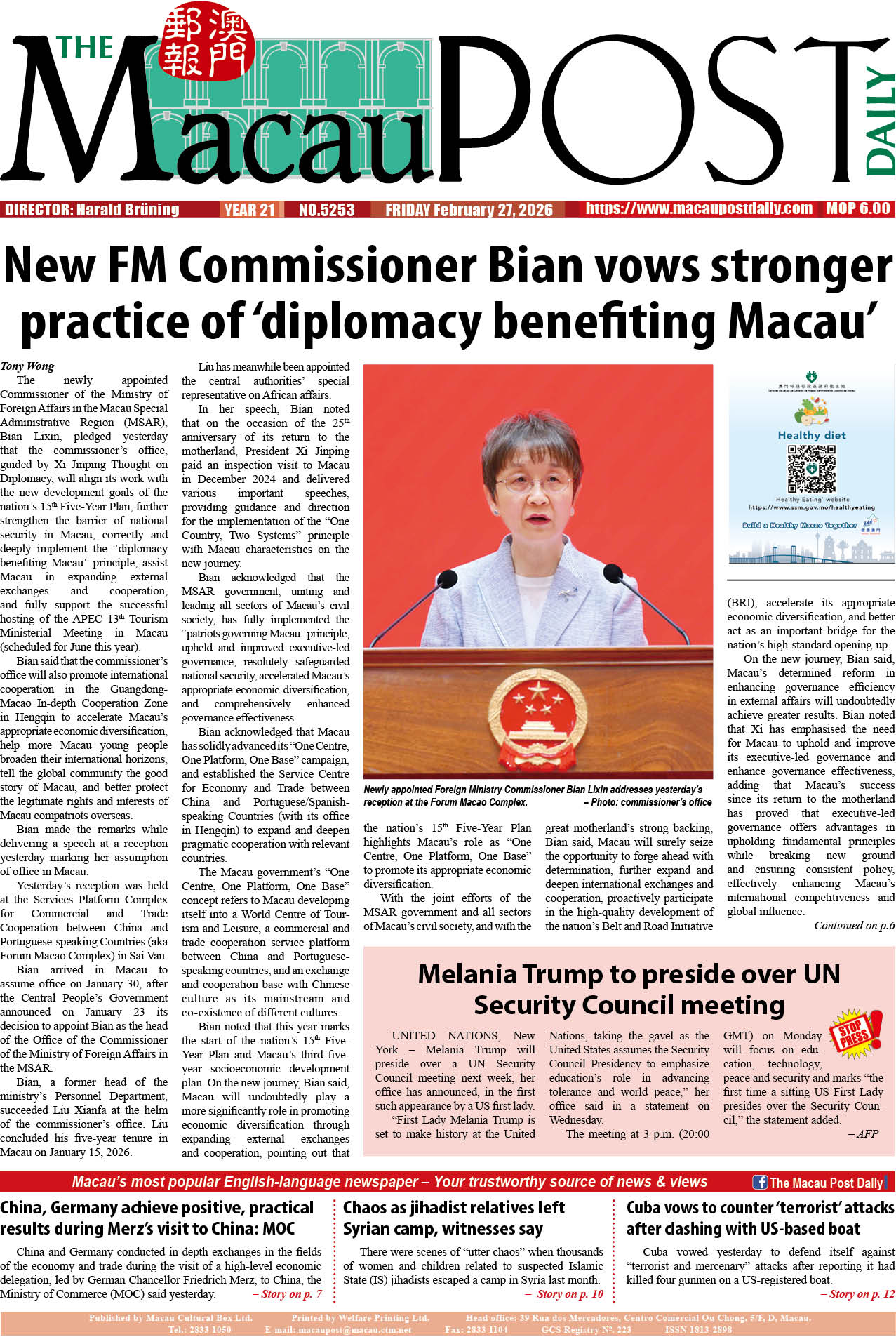When asked by the media this week why Macau’s about 190,000 non-resident workers have been excluded from the government’s second round of COVID-19 support measures, Secretary for Economy and Finance Lei Wai Nong said it was a matter of weighing up different policy priorities.
Lei, widely respected for his down-to-earth attitude, said that the interests of local workers facing unprecedented difficulties continued to be the government’s top priority. However, he was frank enough to acknowledge that for some time the government had considered non-resident workers’ inclusion in its support measures. However, he was quick to add that financial constraints required the government to choose between different support options, a decision-making process that he admitted was difficult.
At least Lei was considerate enough to express the government’s gratitude for non-resident workers’ contributions to Macau’s battered economy also during the current COVID-19 predicament.
Well, gratitude is great but generosity is an even greater act of propriety. All this reminds me of a Yiddish proverb I heard from a fellow student at university back in the 1970s: “Men would not be richer for being miserly; generosity does not make a man poorer.”
Anyway, I am convinced that generosity combined with a healthy dose of pragmatism makes economic sense. One more way to crank up our stricken economy would be to include our non-resident workers in the government’s consumption promotion scheme. Residents’ government-issued smartcards aiming to boost consumer spending have been topped up by another 5,000 patacas, reaching 8,000 patacas in total, according to Lei’s announcement on Wednesday. That’s surely a handsome sum of money, equalling about US$1,000. How many governments elsewhere have been as generous as ours to help their citizens get through the novel coronavirus disease crisis? Perhaps not even a dozen, and there are over 200 countries and territories on our planet.
Our government has one of the highest financial reserves – 0.7 trillion patacas – in the world, not only comparatively but also in absolute terms, even compared with economies much larger than ours. Most foreign governments are anyway sunk in a pool of debt.
I think it would be financially viable for the government to issue consumption promotion smartcards amounting to, say, 2,000 patacas, for our non-resident workers without who, let’s be honest, Macau’s economy would simply be unable to generate the wealth that we all have got accustomed to. Two thousand patacas would, according to simple arithmetic, amount to 25 percent of what permanent and even non-permanent residents will be able to get.
And it would also be a very pragmatic move to give our ailing economy one more badly needed consumer-spending push.
At the end of February, non-resident workers accounted for 48 percent of Macau’s total labour force of 398,400. Mainland China, Hong Kong and Taiwan residents accounted for nearly two-thirds of the total number of non-resident workers. Foreign nationals, mostly Filipinos, Vietnamese, Indonesians and Nepalese accounted for the remainder. Contrary to popular belief, non-resident workers plough back a considerable chunk of their earnings into the local economy, such as by paying rent and buying their daily necessities and goods for their families back home – one more reason for the government to include them into its consumption promotion scheme.
– Harald Brüning







